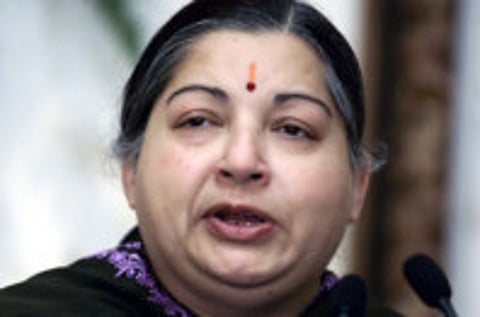The rich and famous are above the law in India
Indian constitution guarantees equal rights for all in law — in reality it’s equal to the degree to which it’s vulnerable to money and authority

The cricketing czar Lalit Modi now charged with criminality under various sections of the law has once again proved to the world that in India if you are rich and powerful you are above the law. During his interview with journalist Rajdeep Sardesai, Modi in his trademark flamboyance was telling one true Indian story. A story where money can buy loyalty and can help you subvert laws.
Indian politicians cutting across political lines were in touch with him; fully aware of his misdeeds. He demonstrated unequivocally that India’s ruling class cutting across political lines has no personal ethics. Political immorality is the root of all evils in public life. The ethical code of conduct is applied to others and not to oneself. The set of rules is meant for others and not for us. However, Modi is just one name in the long list of the high and mighty who all have managed to stay out of the clutches of Indian law despite being charged under various sections of the India Penal Code.
Indian politicians, industrialists and celebrated actors are also equal offenders. Be it Tamil Nadu Chief Minister J. Jayalalitha, Salman Khan, Manu Sharma of the Jessica Lal murder, or Varun Gandhi.
In these cases either the witnesses had either turned hostile or the courts have shown exemplary urgency to absolve the so-called offenders of their crimes. To help the rich and almighty, police officers, witnesses, the public prosecutor’s office, judges, almost everyone involved were either coerced or blackmailed or bribed so that the process remains hassle-free and real quick. The other method often used judiciously is to deliberately delay the proceedings inordinately. It took 19 years for the courts to clear Jayalalitha.
Obstructs constitutional principles
These are recent examples, but public ethics began to nose-dive in India in this 60-year-long mortal combat between capitalism and socialism, and it is democracy that suffered collateral damage. The corruption that lives and thrives in India is the sinister ploy of the political class cutting across political lines. It obstructs constitutional principles, disrupts the rule of law and the will of the people for personal and political gains of a few individuals. It creates a dual reality for its citizens. A set of ideals enshrined in the constitution that affirm equality for all in the eyes of the law. In reality, a dark underbelly is created by the corrupt individuals that sanctions abuse of power and undermines the founding structures of the nation.
Corruption in high places in India is not only about money changing hands. It is an elite club where people prefer to scratch each others’ backs believing it is their moral responsibility to stand up for a friend in need. What else could have made a singer of moderate repute claim that people who were sleeping on the sidewalks in Mumbai are responsible for their deaths when Salman Khan was convicted in the hit-and-run case. Rich Indians have a ferocious sense of entitlement for themselves at all times that has helped to legitimise so many inequalities in India.
It is another issue that the Mumbai High Court took immediate steps to grant him bail within two hours of his conviction. I hope the courts are as prompt if the common man ever has to seek bail. Social media though have recently caused trouble for India’s powerful elite. The masses have not only protested explicitly but often seem to push the system to allow some kind of resemblance of justice. So has society found a remedy to the ills via social media? Not really as many went overboard demanding parole for Khan citing his role as a cultural icon. The deaths of a few hapless individuals 13 years ago is too small an incident in a country of a billion people. The rich man is always considered important even when he has evil intentions.
Recently a man was released from prison after 32 years without a case after which the Supreme Court issued orders to find those who have been in prison for years without a police complaint against them. There was not a single debate in the media for those prisoners who have spent almost all their lives in prison; there was no high society lamentation for such innocent people. In India a person is often judged on financial grounds and never on humanitarian grounds.
The studies in the US speak of the “culture of taking” that comes with privilege. The better-off are more likely to take sweets meant for a child than a less well-off person. If you replace sweets with money, the Indian rich will not hesitate. Funds set aside for development schemes designed to help the poor are regularly siphoned off by the rich. Land that belongs to the poor including that of the adivasis (tribals) is taken to set up factories.
The nexus of industry and politics is exceedingly tight; and the Indian media has voluntarily tied itself to it too. This somewhat lethal combination has acquired the status of a “national truth” in India’s hierarchical society and it is seldom questioned. The behaviour of the rich is taken at face value, saying “they are like that only!”
Sign up for the Daily Briefing
Get the latest news and updates straight to your inbox



